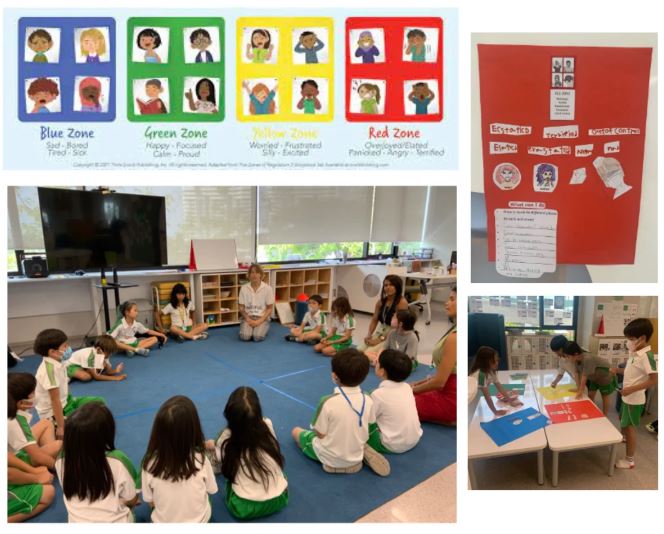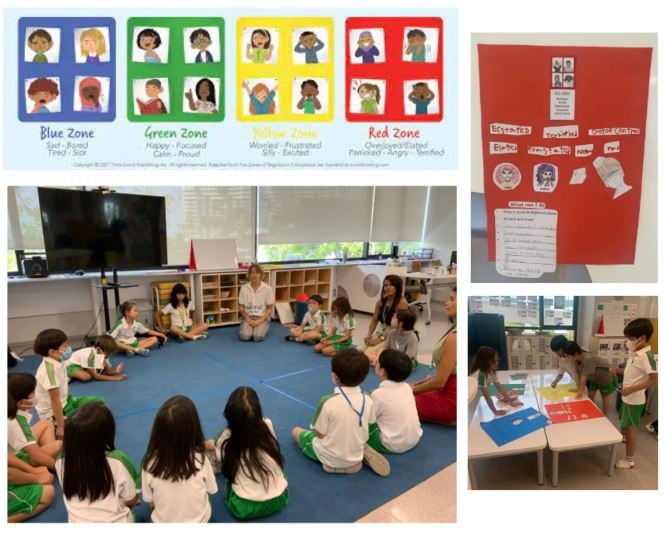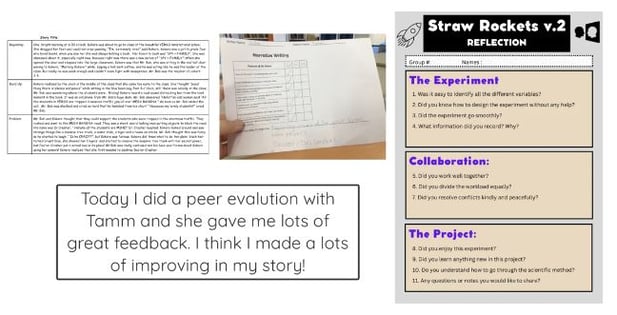Lower Loop Latest - Reflective Practices
Last week, our learning designers participated in a whole school professional development workshop led by Thomas Tran. The workshop focused on developing a Designer Mindset, which is essential for professionals in any industry. It requires a holistic approach to problem-solving and innovation, not just technical skills to create something.
PLD #8: Post-Learning Reflection
Written by Nick Garvin
Last week, our learning designers participated in a whole school professional development workshop led by Thomas Tran. The workshop focused on developing a Designer Mindset, which is essential for professionals in any industry. It requires a holistic approach to problem-solving and innovation, not just technical skills to create something.
Developing a Designer Mindset can make individuals more innovative, creative, and effective problem-solvers in both their professional and personal lives. However, it requires a willingness to learn, experiment, and embrace uncertainty. The benefits are worth the effort, making learners and learning designers more adaptable and resilient.
To develop a Designer Mindset, individuals must identify and define problems, gather information, brainstorm ideas, prototype, and test solutions, and understand human-centered design principles and empathy. The Lower Loop team developed a design brief during the workshop while reflecting on past Learning Lab units. They enhanced their current Learning Lab units with a Designer Mindset lens, striving for continual improvement.
The workshop sparked great discussion among the cohorts, with provocation questions like "How can skills and learning targets become a habit? What procedures can learners perform? How can these skills and learning targets be used to drive learners to dive deeper into their learning, the content, the deliverables, and reflections?" Our learning designers also examined how their habits and routines shape their processes and rituals, recognizing that "Process is Personal."
On behalf of the Lower Loop, we would like to thank Thomas for leading such an inspiring workshop that brought the entire school together for a great day of learning and designing.
"Mind Your Games" - How do Games Affect our Mental Well-Being?Written By Maheshika (Myshi) Mackenzie-Baker There is so much research about the impact screens have on children’s brain development. However, we are living in a time when devices are a part of our daily lives. The Q4 Learning Lab unit is intended to allow learners to see the impact and importance of games on our mental well-being. Learners will explore screen-based and non-screen games. They will be exposed to content such as: how games affect our brain, the idea of ‘instant gratification’, and how to be mindful of our well-being while playing games. The end goal is the idea that learners can become more mindful of what they play, how much time they spend on screens and also learn how to regulate their feelings when they need to. The final product of the unit is to have learners either adapt a game of their liking or design a game of their own. We kickstarted the unit by exploring the ‘Zones of Regulation’ program. It is a curriculum designed to teach students how to identify their energy levels. Furthermore, it teaches learners how to utilize a variety of skills to regulate themselves. Learners in C1-2 were introduced to the above curriculum through a range of games and activities. They also had Lilly, a coach from Mindful Sparks join to discuss and teach a range of mindfulness techniques. Following this, learners created their Zones of Regulation wall, where they came up with ideas of what they can do in each zone. Now, on a daily basis, learners have the option to ‘check-in’ on this wall. It allows them to reflect on their mental state and also lets the Learning Designers be able to help when needed. Upcoming Learning
|
|
|
Reflecting as Part of the Learning ProcessWritten By C3-4 Learning DesignersReflecting on one's work is essential to learning, particularly for young learners. Through reflective practice, children can assume greater control over their learning, identify areas where they excel, pinpoint areas in need of improvement, and set meaningful goals for themselves. By regularly reflecting on their work, children can develop essential skills such as critical thinking, creativity, and collaboration. Reflection helps children to think more deeply about their work, analyze their progress, and consider how they might improve or approach future challenges. We encourage parents to support their child's reflective practice by regularly engaging in conversations about their learning, encouraging them to share their work, and commenting on their children's reflections. Your feedback and support can help your child develop a deeper understanding of their own progress and encourage them to take ownership of their learning. Together, we can continue to create meaningful and engaging learning experiences for our children. Thank you for partnering with us in this important journey!
|
By Mihoko Chida

.png?width=779&height=388&name=unnamed%20(22).png)










